In this year's 'pink wave,' women are helping other women run for office
Some women are turning their anger into a bid for public office.
— -- Amid the sea of signs and rose-colored hats at the New Jersey Women's March in Morristown, Mikie Sherrill, there with her daughter, is one of the latest women to throw her hat into the political ring.
She's a Democrat running for New Jersey's 11th District Congressional seat.
"Right now we are taking on a fight for the very soul of this country," Sherrill told ABC News. "We’re taking on a fight to protect our values to protect what we think America stands for and we can do this together."
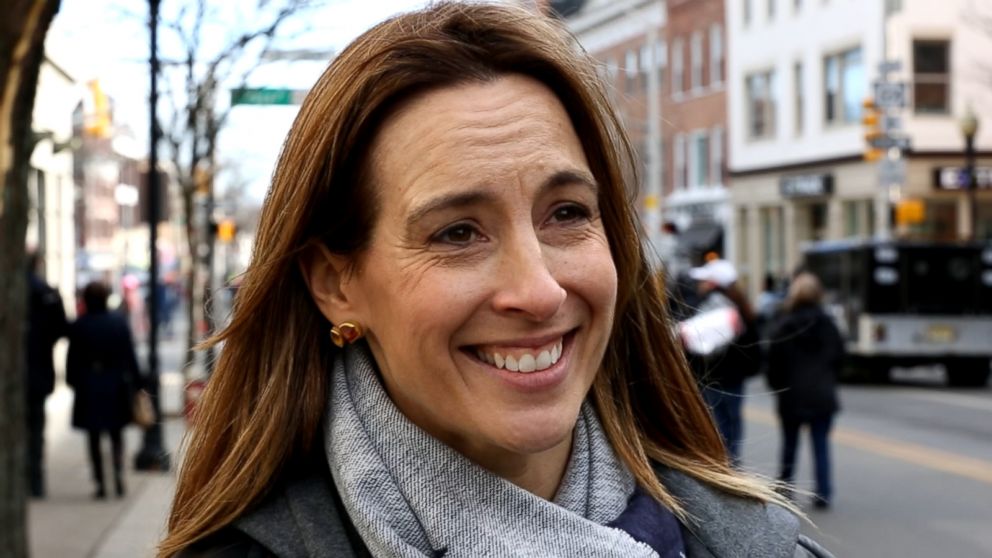
The mother of four coaches her kids' soccer and lacrosse teams. She's also a former Navy helicopter pilot and a former federal prosecutor, who decided to run after being disenchanted with the 22-year Republican incumbent, Rodney Frelinghuysen.
"Serving my country for my entire adult life, to be here and have a congressperson who wouldn’t meet with his constituents, it offended my sense of democracy," Sherrill said. "I got my campaign started across my kitchen table, I told my husband, 'I think I got to run for Congress,' and he said, 'Yeah, yeah you do.'"
So over the weekend, she joined the throngs of women marching worldwide for the second annual Women's March. Since last year, women have moved beyond clever signs and chants. There has been a so-called pink wave, with thousands of women turning their anger into political activism.
According to the Center for American Women and Politics at Rutgers University, 389 women are running for the U.S. House of Representatives, 49 women are running for U.S. Senate and 79 women are running for governor in 2018.
"We are seeing the largest surge of women running for elected office than we’ve ever seen," said Debbie Walsh, director of CAWP. "We’ve never seen numbers like this."
2017 has been called the year of the woman: They stood up and told their stories from the halls of Capitol Hill to the stage at the Golden Globes, putting a spotlight on the issue of sexual assault and harassment.
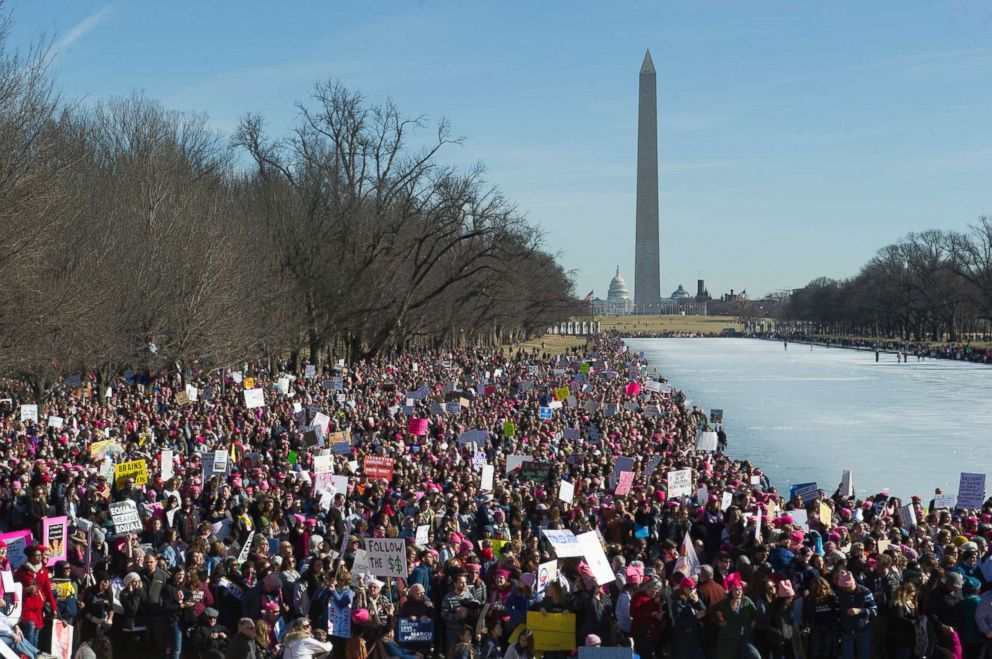
Many say their courage to speak out was sparked in part by last year’s Women’s March, marked by the return of the pink pussycat hats -- a nod to Donald Trump's infamous Access Hollywood tape.
Sherrill is running as the antithesis to Trump and his policies, but while her politics may be popular in a traditionally blue state like New Jersey, some women in the rest of the country say this wave of feminism has no place for them.
"Unfortunately for women who hold pro-life views or perhaps are open to the idea that President Trump might be a good president, there's a real feeling that they're not welcome at these marches. You do not have to give up your beliefs about the size and scope of government or what your values are in order to be part of that conversation," said Kristen Soltis Anderso, a Republican pollster.
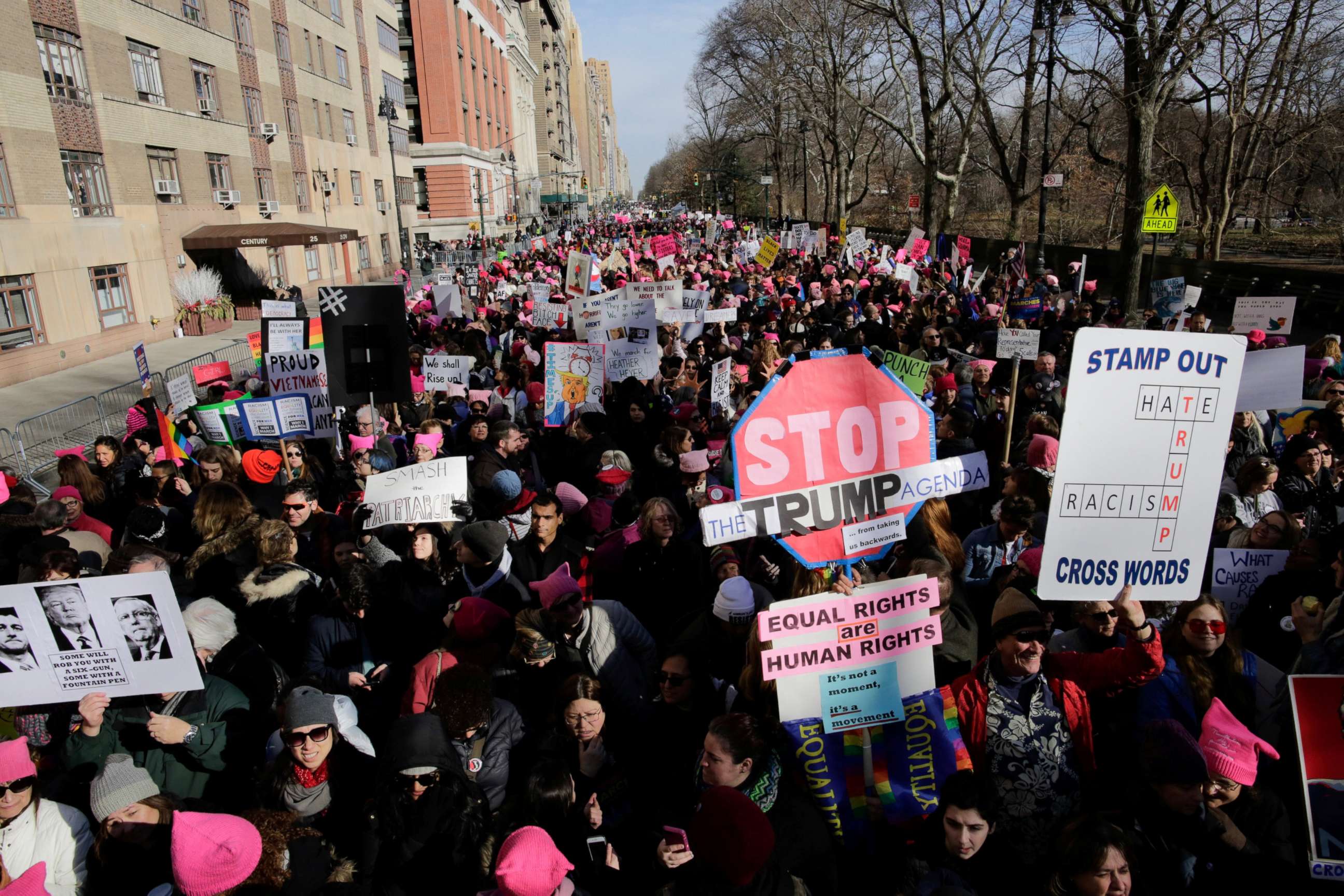
That conversation is broadening, Sherrill is campaigning on as one of eight women running for public office in New Jersey.
"The last year since Donald Trump got elected we have seen an incredible amount of women volunteering on campaigns in Morris county, and running campaigns themselves, and getting elected to office," said Chip Robinson, Chair of the Morris County Democratic Committee.
Sherrill is backed in part by the progressive group Emily's List, an organization that helps women run for public office.
"I actually went down to a friend in D.C. that I had served in the military with, she happens to be a Republican and she said, 'You've got to go to Emily's List,'" Sherrill said. "They help women get elected."
Since their founding, Emily's List has helped elect over 100 Democratic women to the House, 23 to the Senate, 12 to gubernatorial seats, and hundreds more to state and local office.
"[On the] Republican side, there have not been as many groups focused on the question of how do we help women win in primaries," Anderson said. "This is all too often where women on the republican side of the aisle struggle to get elected."
Walsh said these outside organizations that are doing work to support women who are running for office are "critical."
"Organizations like Emily's List or Higher Heights ... these are all important organizations that are giving women who are out there and who might not get the kind of traditional support, that extra push, that extra support that they need," she added.
Women helping women seemed to be a key piece of the pink wave, with prominent female celebrities getting involved with the effort.
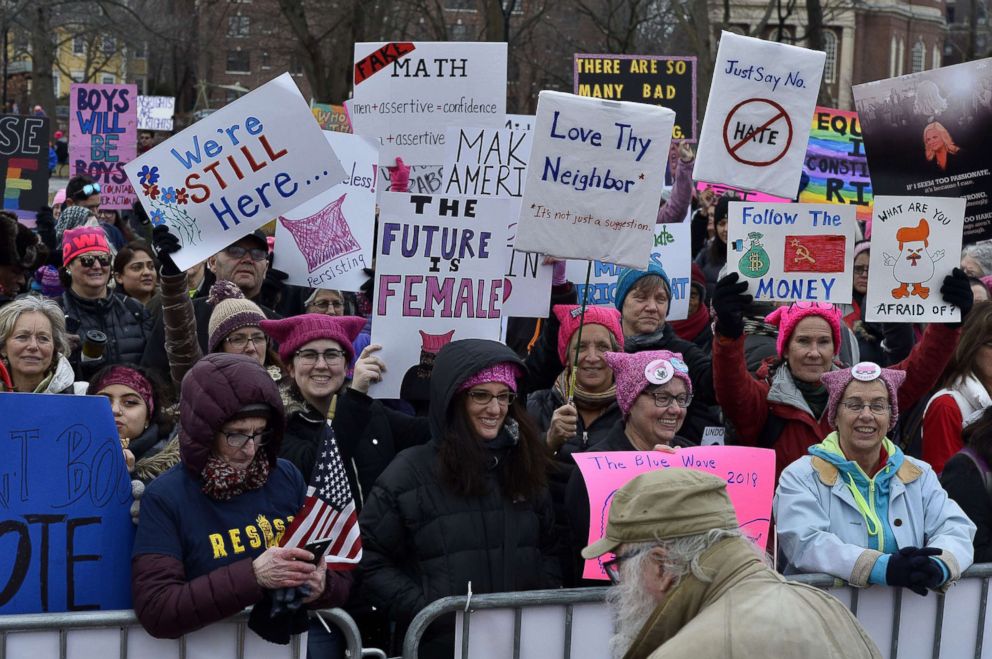
In New York this past weekend, actress Amber Tamblyn came out to a training event held by the nonpartisan group VoteRunLead.
"I really love this organization so much because of its bipartisanship, because it's asking to hold space for all women," Tamblyn said. "I think we're just looking at an era, which women are no longer asking to be part of the conversation -- they're demanding it."
Tamblyn has been a big part of the conversation this past year, sharing her experience with sexual assault in a New York Times op-ed, writing in part, "We are learning that the more we open our mouths, the more we become a choir, and the more we are a choir, the more the tune is forced to change."
VoteRunLead holds training sessions to teach women how to campaign, fundraise and chose the right office for them.
"We're training women from both sides of the aisle who are barrier breaking," said Erin Vilardi, the founder VoteRunLead.
"I think there are a lot of conservative women who believe that if feminism means women should be politically, economically, legally, equal, then yes, they’re on board with that message," Anderson added.
Vilardi said her group challenges the notion that Republican women are left out and adds that many of their candidates don't even affiliate with one party.
"We really believe that women's leadership, women's rights, women's ability to lead in the world does not belong with either party," she said. "We're getting tons of young millennial Republican women who are coming and looking for a home."
Walsh said that part of the challenge in the Republican Party is recruiting women to run for office.
“On the Democratic side, there’s much more of a sense of identity politics, it matters, it’s important, we want to have African Americans and Latinos and Asian Americans," she said. "And that kind of identity politics embraces that kind of diversity that brings more women into office... The Republican party talks about wanting to have more diversity, but it’s not substantively there."
Vilardi’s group calls their approach “Run As You Are” and it’s working.
“VRL [VoteRunLead] had a 70 percent win rate for our first time candidates in 2017,” she said. “That is unheard of.”
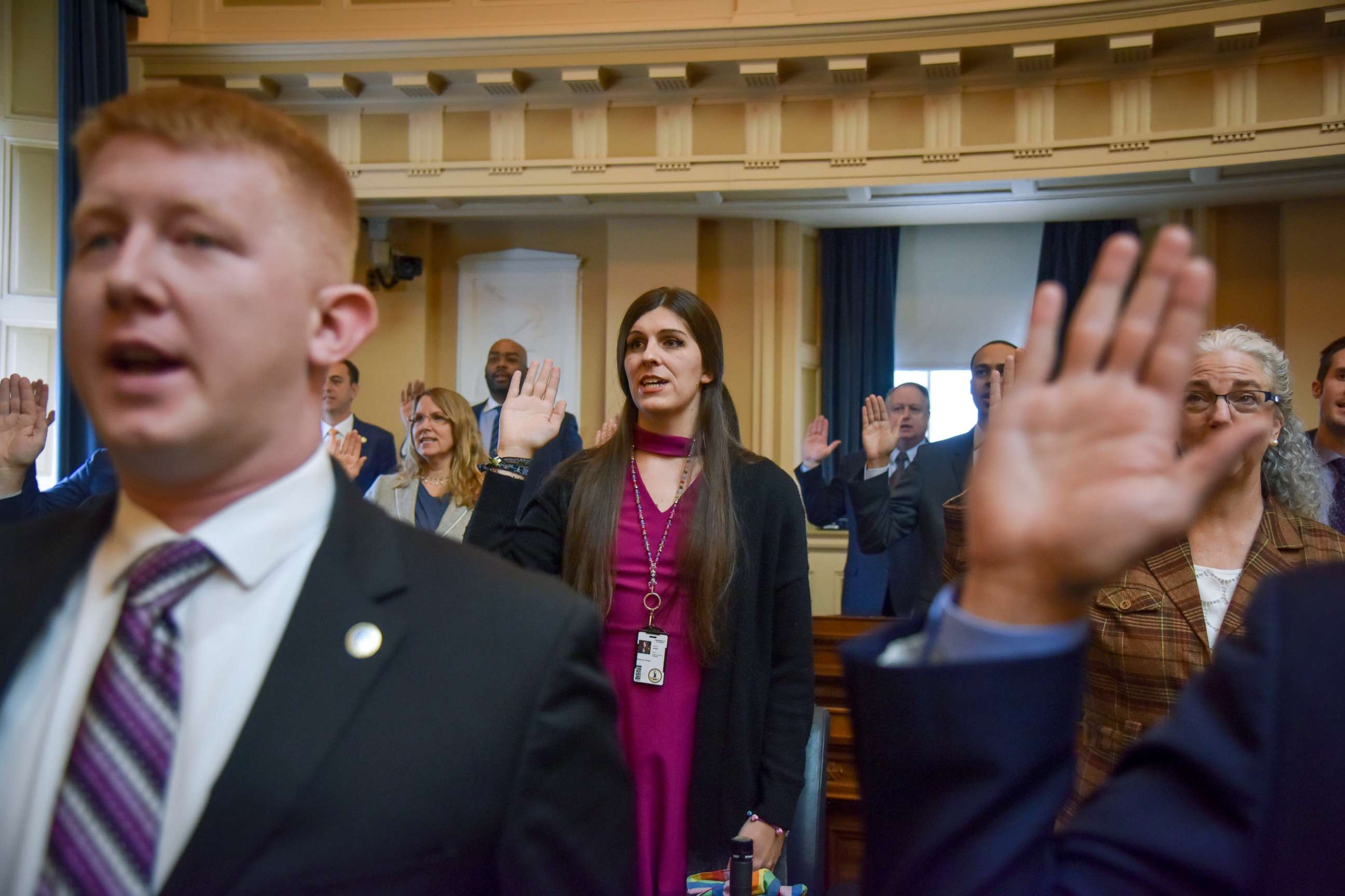
If there’s any doubt that these groups are succeeding, look no further than Virginia. This past November, nine state legislative seats were flipped by women and 11 total women won in the state, giving Virginia its highest number of female house of delegates in its history.
All of the winners were backed by “Emerge Virginia,” part of a national organization promoting Democratic women candidates that boasts a 70 percent win rate.
Sworn in this weekend, the freshman class includes Hala Ayala, a single mother and one of the first Latina delegates, Kathy Tran, one of the first Asian-American women delegates who was pregnant during her campaign, and Danica Roem, the first openly transgender person elected to any U.S. state legislature.
Roem’s historic victory held even greater significance as she defeated Bob Marshall, who held the seat for 25 years and had a strong anti-LGBTQ stance, even calling himself Virginia’s “chief homophobe.”
The 2018 campaign season is just beginning. Women are underrepresented at nearly every level of office, according to CAWP, holding only roughly 20 percent of elected seats at the federal and state levels.
“Women are looking for ways to have power and holding elected office to have power,” Walsh said. “If you’re not at the table, you're on the menu.”
And these women are putting their names on the ballots and wielding their power in the voting booth.
“The whole process of women marching of women voting, of women running for office, is fueling its own energy,” Vilardi said. “It’s the food that we have been hungry for this is the moment for women to become a permanent part of leadership in this country.”



